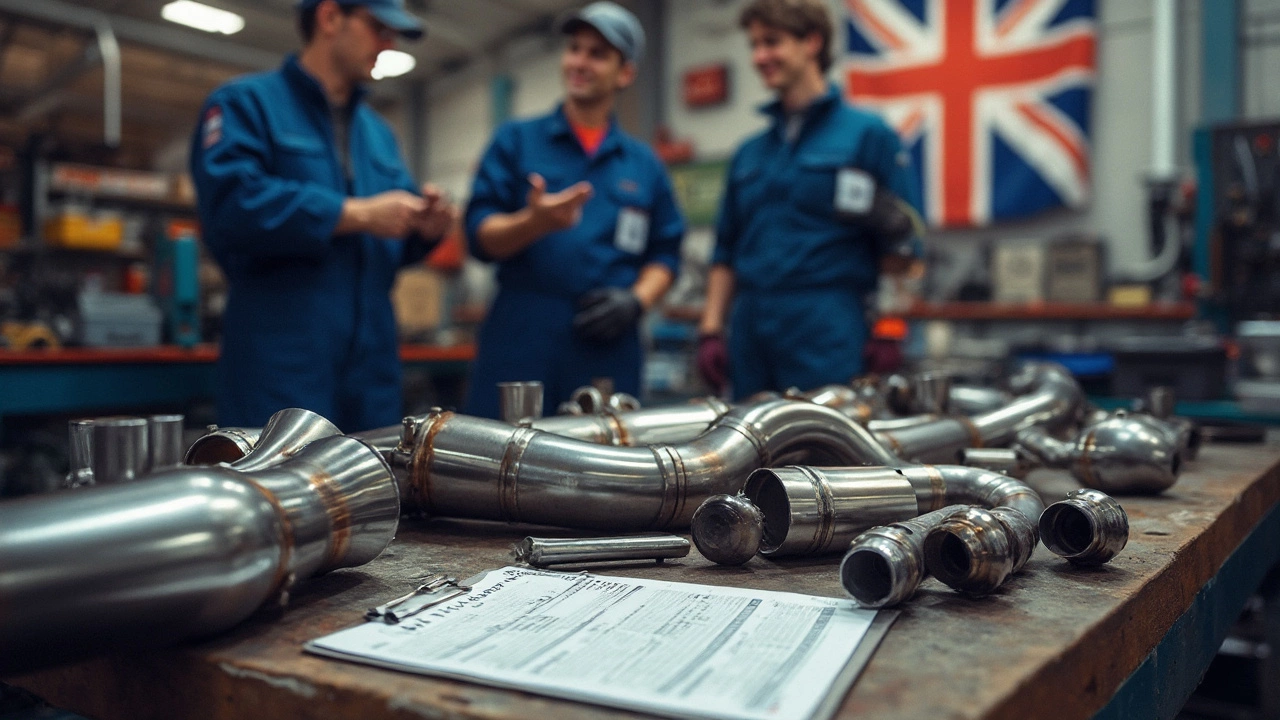Thinking about swapping your exhaust? The first question on everyone’s mind is the price. It isn’t just a single number – it depends on the type of system, the material, how much labor you need, and where you buy it. Below we break down the main cost drivers so you can plan a budget that actually works.
A cat‑back kit (the pipe from the catalytic converter to the muffler) usually runs $300‑$800 for most everyday cars. If you want a full‑system upgrade that includes headers, a high‑flow catalytic converter, and a performance muffler, expect $800‑$2,000 or more. Mufflers alone can be as cheap as $50‑$150 for a basic unit, but performance mufflers often start at $200 and climb quickly.
Stainless steel is the most common choice because it resists rust and lasts long. A decent stainless‑steel cat‑back is about $400‑$900. Titanium or carbon‑fiber options look cool but can cost $1,500‑$3,000. Brand matters, too – well‑known names charge a premium for quality control and warranty support. Labor rates vary by garage; a simple install might be $100‑$200, while a full system with custom fitting can hit $500.
Where you buy makes a difference. Online shops often have lower base prices, but you’ll need to add shipping and possibly extra hardware. Local performance shops include installation in the quote, which can simplify budgeting. If you’re handy, a DIY install can shave a few hundred dollars off the total, but be honest about your skill level – a botched job can cost more to fix.
Here’s a quick price snapshot:
These ranges are not set in stone, but they give you a feel for what you’ll see when you start shopping.
To keep the price from blowing up, compare at least three sources. Look for sales, clear‑out deals, or refurbished units that still come with a warranty. Don’t forget to ask the installer about any hidden fees – sometimes you’ll need new hangers, gaskets, or heat‑shield brackets that add $50‑$100 each.
Another tip: consider the total ownership cost. A cheap exhaust might rust faster, meaning you’ll replace it sooner. A higher‑priced stainless or titanium system can last the life of the car, saving you money down the road. Factor in the sound you want, too – louder doesn’t always equal better, and some neighborhoods have noise limits that could lead to fines.
Finally, think about resale value. A well‑chosen performance exhaust can boost a car’s appeal to future buyers, especially if you keep receipts and documentation. If you’re planning to sell soon, aim for a reputable brand and a clean install.
Bottom line: exhaust system price is a mix of parts, material, labor, and where you buy. By knowing the typical ranges, checking multiple vendors, and weighing long‑term durability, you can get a setup that sounds great without emptying your wallet.

Wondering how much a custom exhaust system costs? This article explains the main factors that impact price, from materials and labor to design choices. You'll find honest ballpark numbers, practical tips for getting the best value, and what to watch out for at the shop. Perfect if you want more power, a better sound, or just something unique for your ride. Get a real-world breakdown before you spend.